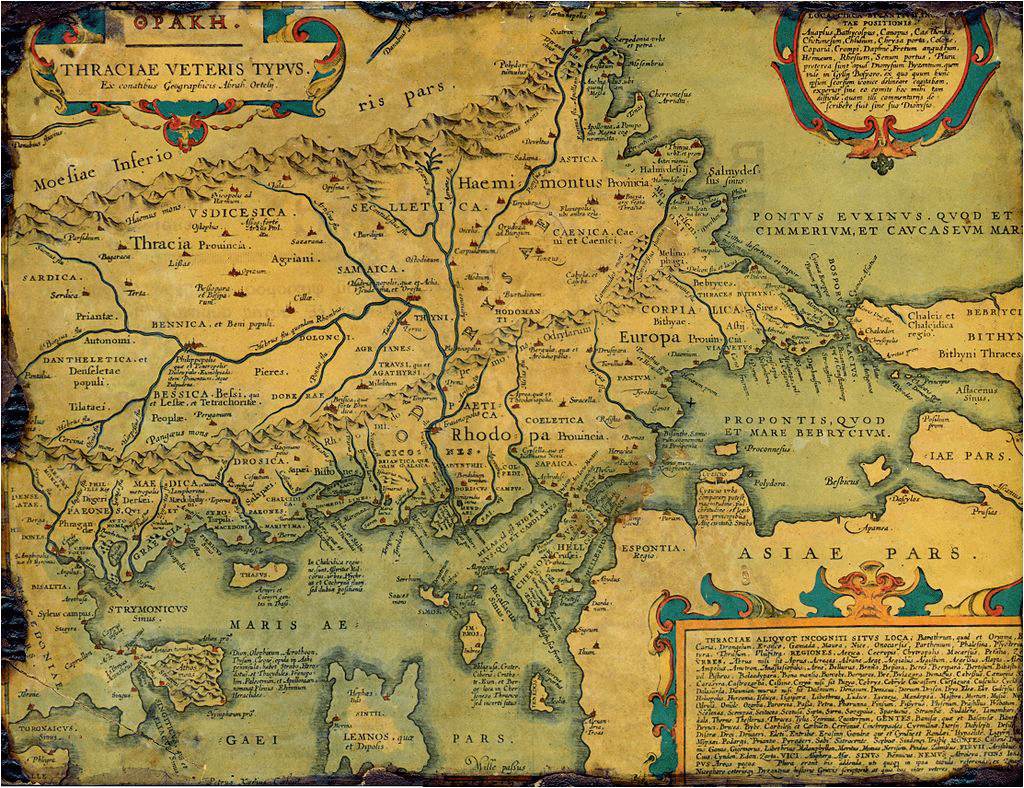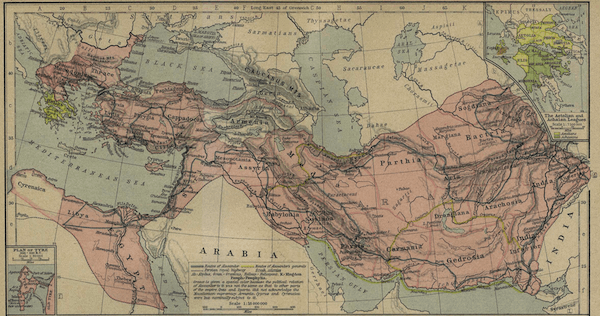Hellenistic Kingdoms > Kingdom of Macedon
Kingdom of Macedon
Background
The Kingdom of Macedon, also known as Macedonia was an independent country in northern Greece. While sharing a similar culture to the city-states to the south, Macedon was always slightly different than its counterparts on the Mediterranean. According to Herodotus the country was first inhabited by the Mackednoi tribe who began to call themselves Hellenes, a term which would later apply to all Greeks following Alexander III the Great and the Hellenistic Period.
The Kingdom of Macedon evolved from a relatively obscure state into a dominant power under Philip II and Alexander the Great. Its military innovations, strategic marriages, and expansive conquests reshaped the ancient world, leading to the spread of Greek culture across the Mediterranean and Near East. After Alexander’s death, the kingdom faced fragmentation and eventually fell to Roman conquest, marking the end of Macedonian dominance but leaving a lasting legacy on subsequent civilizations.
Initially the Mackednoi tribe had little to do with the affairs of southern Greece. Macedon was invaded by the Persian Empire in 480 BCE under Cyrus the Great but preferred to stay out of the inner-fighting that occurred between the Greek city-states even while under the control of the Persians. Macedon would truly shine under the rule of Alexander III the Great, who brought a great portion of the ancient world together and united under one empire, even if for a brief period of time.
The death of Alexander the Great would lead to a fracturing of the empire into various Hellenistic Kingdoms during the ensuing Wars of the Diadochi, but left an imprint on every region he touched which was not to be forgot anytime soon. Soon after his death his last heir would be killed and the Argead Dynasty which had ruled Macedon from its inception was completely lost.
Origins
The Kingdom of Macedon, or Macedonia, was an ancient kingdom located in the northern Greek peninsula. It rose to prominence under the rule of the Argead dynasty, particularly during the reigns of Philip II and his son Alexander the Great. Here is a detailed overview of the Kingdom of Macedon. Macedon was situated in the northern part of Greece, bordered by Epirus to the west, Thrace to the east, and Thessaly to the south. Its capital was originally Aegae (modern-day Vergina) before moving to Pella. The Argead dynasty claimed descent from Heracles and established Macedon's early monarchy. The kingdom's early history involved conflicts with neighboring regions and internal consolidation.

Map of Thrace & Greece - Abraham Ortelius (1585)
Argead Dynasty
See Argead Dynasty
Philip II of Macedon
Macedon would change drastically under the leadership of Philip II of Macedon (382-336 BCE) who was the father to Alexander III the Great. Philip II reformed the Macedonian army, introducing the phalanx formation equipped with long spears (sarissas), and creating a professional, disciplined military force. He expanded Macedon's territory through diplomacy, marriage alliances, and military conquests, including Thessaly and parts of Thrace. In 337 BCE, Philip established the League of Corinth, uniting most of the Greek city-states (except Sparta) under his leadership to launch a campaign against the Persian Empire.
Alexander III the Great
After Philip's assassination in 336 BCE, his son Alexander ascended the throne. Alexander quelled internal revolts and secured his rule before embarking on his famous conquests. Alexander's campaigns from 334-323 BCE expanded Macedon's empire to unprecedented extents, including Egypt, Persia, and parts of India. His conquests spread Greek culture and led to the Hellenistic Era. Alexander died in 323 BCE in Babylon. His death led to the division of his empire among his generals (the Diadochi), marking the end of a unified Macedonian empire but initiating the Hellenistic kingdoms.

Alexanders Empire (336-323 BCE) Historical Atlas (1923)
Wars of the Diadochi
After Alexander's death, his empire fragmented as his generals fought for control. Macedon itself became a contested region. Antigonus I Monophthalmus and his descendants established the Antigonid dynasty, which ruled Macedon from 306 BCE until its conquest by Rome. Antigonus I Monophthalmus fought for control over parts of Alexander’s empire but was defeated at the Battle of Ipsus in 301 BCE. Antigonus II Gonatas re-established control over Macedon and repelled invasions, securing the kingdom's stability. Philip V and Perseus faced increasing Roman intervention, leading to conflicts like the Macedonian Wars, a series of conflicts between Macedon and Rome, culminating in the Battle of Pydna (168 BCE) where Rome decisively defeated King Perseus, leading to the end of the Antigonid dynasty.
Roman Republic
See Roman Republic
Macedon would be conquered and annexed by the Roman Republic in 148 BCE along with the rest of Hellenistic Greece. After the defeat at Pydna, Macedon was divided into four republics under Roman control. In 146 BCE, it was fully annexed as a Roman province. Despite its fall, Macedon significantly influenced the Roman world through its contributions to military tactics, governance, and Hellenistic culture.
Hellenistic Cultures
- Acarnanian League
- Achaea Phthiotis
- Achaean League
- Achaemenid Empire
- Aeternae
- Aetolian League
- Agalassoi
- Agrianes
- Alans
- Alexander And Carthage
- Alexander And Rome
- Antigonid Macedonia
- Antipatrid Macedonia
- Aram
- Asian Cultures
- Assacani
- Athamanians
- Bastarnae
- Boeotia
- Carthaginian Empire
- Carthaginian Iberia
- Celtiberians
- Celts
- Chrysaor
- Chrysaorian League
- Cimmeria
- Coele Syria
- Corinthian League
- Cossaei
- Cultural Diffusion
- Cyprus
- Cyrenaica
- Dardani
- Dayuan
- Diadochi States
- Edom
- Elymais
- Epirote League
- Getae
- Greco Bactrian Kingdom
- Gupta Empire
- Han Empire
- Hasmonean Kingdom
- Hellenic League
- Hellenism
- Hellenistic Anatolia
- Hellenistic Asia
- Hellenistic Decline
- Hellenistic Europe
- Hellenistic Greece
- Hellenistic India
- Hellenistic Kingdoms
- Hellenistic Mediterranean
- Hellenistic Mesopotamia
- Hellenistic Near East
- Hellenistic Period
- Hellenistic Place Naming
- Hindush
- Iberians
- Illyria
- Illyrians
- Indian Empires
- Indo Greek Kingdom
- Indo Parthian Kingdom
- Indo Scythians
- Iron Age
- Jews Of Libya
- Jews
- Kambojas
- Kingdom Of Armenia
- Kingdom Of Bithynia
- Kingdom Of Commagene
- Kingdom Of Epirus
- Kingdom Of Kush
- Kingdom Of Macedon Expansion
- Kingdom Of Macedon
- Kingdom Of Mauretania
- Kingdom Of Numidia
- Kingdom Of Osroene
- Kingdom Of Pergamon
- Kingdom Of Persis
- Kingdom Of Pontus
- Kingdom Of Sophene
- Kingdom Of The Cimmerian Bosporus
- Kingdom Of Tylis
- Kushan Empire
- League Of Corinth
- League Of The Islanders
- Lycaonia
- Lysimachian Empire
- Maccabees
- Maeotians
- Malians
- Masaesyli
- Massagetae
- Massylii
- Maurya Empire
- Molossians
- Musikas
- Nabataean Kingdom
- Nesiotic League
- Nubia
- Nuristanis
- Odrysian Kingdom
- Oreitans
- Orestis
- Paeonia
- Paropamisadae
- Parthian Empire
- Phryni
- Ptolemaic Culture
- Ptolemaic Kingdom
- Roman Empire
- Roman Republic
- Sapaean Kingdom
- Scythia
- Seleucid Empire
- Seleucid Legacy
- Serica
- Sunga Empire
- Thessaly
- Thrace
- Triballians
- Uxians
- Yuezhi